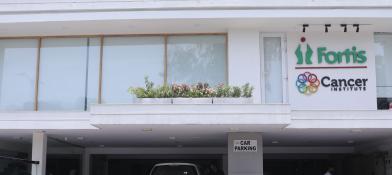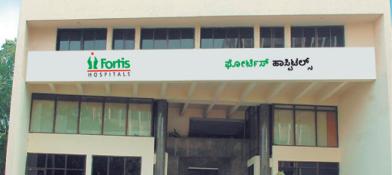BRCA gene test for breast cancer
Breast cancer is commonly developing cancer in a woman if she possesses particular risk factors. A risk factor differentiates between anything that leads to higher chances of suffering from a given disease. As for some risk factors, for example, smoking cigarettes, they can be changed or avoided, unlike others, such as the family history of breast cancer. That is why measuring up with genetic testing for BRCA gene mutations remains critical. It provides crucial information on any person’s likelihood based on knowing his/her BRCA gene status, therefore shaping practices on an early diagnosis (screening) and preventive care measures’ choice. Identifying these mutations soon enough assists one in following breast cancer risk effectively throughout life.
BRCA in breast cancer or carcinoma
BRCA1 and BRCA2 are two genes each of us inherits from their parents. These are termed tumor suppressors as they help prevent cells, including breast cells from growing and dividing uncontrollable. When BRCA1 and BRCA2 undergo mutations and fail to function normally, the risk of cancer increases. People who have inherited these mutations have a higher-than-average possibility of having breast cancers as well as ovarian cancers.
Epidemiology of BRCA Mutations
BRCA1 and BRCA2 mutations significantly elevate the risk of breast cancer, although they are relatively uncommon, affecting about 1 in 500 women in the general population. Research indicates that 55%–72% of women with a harmful BRCA1 mutation and 45%–69% of women with a harmful BRCA2 mutation will develop breast cancer by the age of 70-80. However, the risk for each woman varies based on several factors, some of which remain not fully understood.
Indicators of High Risk for BRCA Mutations
Your doctor may recommend genetic testing for BRCA mutations if you are at high risk. Indicators of high risk include:
- Early-onset breast cancer: Diagnosis before age 50.
- Bilateral breast cancer: Cancer in both breasts.
- In the case of triple-negative breast cancer breast cancer lacking estrogen, progesterone, and HER2 receptors.
- A non-recurrent second breast cancer diagnosis.
- Family history: Relatives with breast cancer (especially at a young age or in men), ovarian cancer, fallopian tube cancer, primary peritoneal cancer, pancreatic cancer, prostate cancer, or metastatic prostate cancer.
- Known family history of mutations: Family members with BRCA or other gene mutations.
- Multiple family members with breast cancer: Several relatives diagnosed with breast cancer.
Consideration of BRCA Genetic Testing
Genetic testing for breast cancer is not recommended for everyone. However, it might be advised based on your personal and family medical history. Your doctor will evaluate your situation to decide if genetic testing is suitable for you. The results can guide decisions about risk reduction strategies, treatment options, and cancer management.
Preparing for the Test
Before genetic testing, you typically undergo a risk assessment with a genetic counselor or healthcare provider. This involves reviewing your family's cancer history, including the cancer types and ages at diagnosis. If this assessment indicates a higher risk of carrying a BRCA1 or BRCA2 mutation, your genetic counselor will discuss the benefits and drawbacks of testing and help you decide whether to proceed.
During the test
The test depends on the collection of sample types. The different types of samples used for genetic testing are as follows:
Blood sample: Blood collection involves drawing the blood sample from the vein of the upper arm with the help of needle connected tube.
Cheek swab: or A health provider carefully collects cells from cheeks with a small spatula or foam brush or may be given instructions and tools to do this easy and painless test by yourself alike way.
Saliva sample: Typically, 2-5 minutes will be taken to ask an individual to spit into a tube or use a cotton ball for collection of saliva; a preservative will also be added to the recipient for testing so as to keep sample integrity.
After the test
For blood samples, the individual might experience slight bruising at the site, which is uncommon. However, the blood drawn site will be bandaged or pressed with cotton balls to avoid bleeding.
If a saliva sample or cells from inside your cheek were taken, there is no need for any special precautions afterward.
Interpreting Test Results
BRCA1 and BRCA2 mutation testing can yield three types of results:
Positive Result: Indicates the presence of a BRCA1 or BRCA2 mutation, significantly increasing cancer risk. However, it does not predict if or when cancer will develop. A positive result also has implications for family members, as the mutation can be inherited. Each child of a parent with the mutation has a 50% chance of inheriting it. Siblings also have a 50% chance of carrying the mutation. In rare cases, a mutation may arise spontaneously (de novo) in a germ cell, affecting the individual's children but not their siblings.
Negative Result: A negative result can mean several things, depending on the family's known genetic history. If a known harmful mutation exists in the family, a negative result indicates the individual did not inherit it and will not pass it to their children. This is known as a "true negative," meaning the person's cancer risk is like that of the general population. However, other factors, such as early-age radiation exposure, can still affect cancer risk and should be considered.
BRCA1 versus BRCA2: Discovering the Contrasts
While they are both responsible for elevating the chances of suffering from cancer, mutations in the BRCA1 genes are specifically associated with an increased risk of certain types of malignancy compared to BRCA2 genes.
On the one hand, breast cancer risk can significantly increase among women possessing BRCA1 mutations including triple negative breast cancer, which is usually aggressive and difficult to treat. Conversely, a man suffering from breast cancer could have had BRCA2 mutation even though such cases are rare. For example, men who have a BRCA2 mutation are at a 6% lifetime risk of getting breast cancer, when compared with a 1 % risk for men who have BRCA1 mutations. Identifying whether the change has occurred at BRCA1 or BRCA2 levels can be useful when determining who is at risk for developing appropriate measures to for monitoring or preventing the condition.
By understanding and utilizing BRCA gene testing, individuals can take informed decisions about their health and make proactive measures to manage their cancer risk effectively.
Popular Searches :
Hospitals: Cancer Hospital in Delhi | Best Heart Hospital in Delhi | Hospital in Amritsar | Hospital in Ludhiana | Hospitals in Mohali | Hospital in Faridabad | Hospitals in Gurgaon | Best Hospital in Jaipur | Hospitals in Greater Noida | Hospitals in Noida | Best Kidney Hospital in Kolkata | Best Hospital in Kolkata | Hospitals in Rajajinagar Bangalore | Hospitals in Richmond Road Bangalore | Hospitals in Nagarbhavi Bangalore | Hospital in Kalyan West | Hospitals in Mulund | Best Hospital in India | | Cardiology Hospital in India | Best Cancer Hospital in India | Best Cardiology Hospital in India | Best Oncology Hospital In India | Best Cancer Hospital in Delhi | Best Liver Transplant Hospital in India
Doctors: Dr. Rana Patir | Dr. Rajesh Benny | Dr. Rahul Bhargava | Dr. Jayant Arora | Dr. Anoop Misra | Dr. Manu Tiwari | Dr. Praveer Agarwal | Dr. Arup Ratan Dutta | Dr. Meenakshi Ahuja | Dr. Anoop Jhurani | Dr. Shivaji Basu | Dr. Subhash Jangid | Dr. Atul Mathur | Dr. Gurinder Bedi | Dr. Monika Wadhawan | Dr. Debasis Datta | Dr. Shrinivas Narayan | Dr. Praveen Gupta | Dr. Nitin Jha | Dr. Raghu Nagaraj | Dr. Ashok Seth | Dr. Sandeep Vaishya | Dr. Atul Mishra | Dr. Z S Meharwal | Dr. Ajay Bhalla | Dr. Atul Kumar Mittal | Dr. Arvind Kumar Khurana | Dr. Narayan Hulse | Dr. Samir Parikh | Dr. Amit Javed | Dr. Narayan Banerjee | Dr. Bimlesh Dhar Pandey | Dr. Arghya Chattopadhyay | Dr. G.R. Vijay Kumar | Dr Ashok Gupta | Dr. Gourdas Choudhuri | Dr. Sushrut Singh | Dr. N.C. Krishnamani | Dr. Atampreet Singh | Dr. Vivek Jawali | Dr. Sanjeev Gulati | Dr. Amite Pankaj Aggarwal | Dr. Ajay Kaul | Dr. Sunita Varma | Dr. Manoj Kumar Goel | Dr. R Muralidharan | Dr. Sushmita Roychowdhury | Dr. T.S. MAHANT | Dr. UDIPTA RAY | Dr. Aparna Jaswal | Dr. Ravul Jindal | Dr. Savyasachi Saxena | Dr. Ajay Kumar Kriplani | Dr. Nitesh Rohatgi | Dr. Anupam Jindal
Specialties: Heart Lung Transplant | Orthopedic | Cardiology Interventional | Obstetrics & Gynaecology | Onco Radiation | Neurosurgery | Interventional Cardiology | Gastroenterologist in Jaipur | Neuro Physician | Gynecologist in Kolkata | Best Neurologist in India | Liver Transfer | Best Cardiologist in Delhi
































